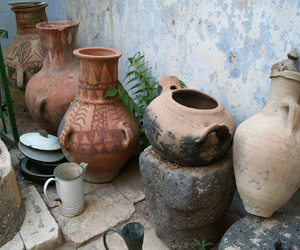Mysticism In Biblical And Talmudic Texts
Scholars of the Kabbalah believe that the mystic discipline first became accessible to humans as God revealed secrets to Adam. Rabbinical texts imply that God created the world by means of the Ten Sephirot. Later Kabbalistic works delve deep into the mysteries of Creation using Genesis as a prism for revealing secrets about God, the real nature of man as embodied by Adam and Eve, what the Garden of Eden represents, how the Tree of Knowledge teaches us about Good and Evil, and about the Tree of Life. These texts also treat the nature of the relationship between all of the above entities and the serpent as well as the nature of the catastrophe that ensues when man tastes the forbidden fruit.
Mystical Speculation
But biblical mysticism is not limited to the Book of Genesis. There is much mystical speculation surrounding the prophecies of Ezekiel, and Isaiah abounds with examples of a higher consciousness, as evidenced by his prophecies in relation to the Temple. The patriarch Jacob envisaged a ladder leading to heaven and Moses heard a voice from a Burning Bush as well as the voice of God Himself as he stood on Mt. Sinai. Jewish Kabbalists utter a 72 letter name of God as a meditation and this name of God is taken from a word spoken by Moses in the presence of an angel during the splitting of the Red Sea and the escape of the Jews from the approaching Egyptians. All of these examples prove the existence of mystical events within the Jewish Bible, and these are evidence of a Jewish foundation to the belief in the mystical.
God's Name
But while the Jewish bible abounds with mysticism, Talmudic doctrine (the Oral Law) warned the public away from the study of mystic texts and forbade the public teaching of Kabbalah. In the Mishna (Hagiga 2:1) it is suggested that teachers should teach the secrets of Creation on a one to one basis, only.
The PaRDeS
There is a famous Jewish legend (Aggada) which speaks of four important rabbinical scholars, who lived in the first century CE, who are said to have visited the PaRDeS--an acronym denoting the four levels of understanding text and whose literal meaning is "Orchard." The four rabbis, Ben Azzai, Ben Zoma, Acher, and Akiva entered the Pardes. Ben Azzai saw and fell dead, Ben Zoma, saw and became insane, Acher destroyed the fruit trees, and of all of them, only Akiva entered in peace and left in peace. Of these four notable rabbis, it seems that only Rabbi Akiva was strong enough to withstand the learning of the mystical works.

